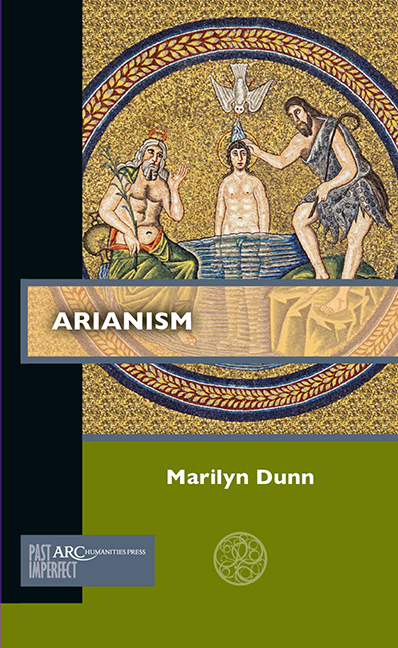Chapter 1 - Was Arius an Arian?
Published online by Cambridge University Press: 18 June 2021
Summary
We know very little about Arius: he was apparently a Libyan by origin and a priest of the Baucalis district in Alexandria. Only fragments of his writings survive, some deliberately lifted out of context by his opponents. Crucially, however, we have the complete text of a letter which he and other Alexandrian clerics sent to their bishop, Alexander, after he had excommunicated them at some point before 318. In it they express their opposition to the idea that the Son is consubstantial with—of the same substance as—the Father. They also explain their opposition to this idea, stating that the Son of God is not “as Valentinus has laid down an emanation nor as the Maniacheans taught a one-in-essence portion (alternatively, consubstantial part, in Greek meros homoousion) of the Father.” These important statements have been dismissed as heresiological rhetoric—or ignored. But they reveal that Arius and associates were opposed to the idea that the Son was of the same substance as the Father, because it seemed to them too close to the teaching of two forms of Christianity, Valentinian Gnosticism and Manichaeism, both powerful rivals to the “mainstream” church in the early fourth century.
In the second century, Valentinus, an Alexandrian teacher in Rome, had founded a type of Christian Gnosticism that continued to evolve long after his death. Gnostics saw the human soul as a fragment of a good God, and the present world as the creation of a lower creator god, an evil demiurge. Salvation would be attained through the gnosis—literally, knowledge—that would guide the intellect, the highest part of the soul, out of this evil world, re-integrating it with its original source, the good God. Manichaeism had originated in third-century Iran: its founder, Mani, envisaged a cosmic struggle between the forces of darkness and light and taught that human beings were composed of a mingling of particles of the divine light with malign darkness and matter.
However esoteric these ideas might seem now, Manichaeans and Valentinians both regarded themselves as Christians. Mani proclaimed himself “the apostle of Jesus Christ,” claiming to complete the teachings of Jesus, Buddha, and Zoro-aster: Gospel sayings and references to the writings of St. Paul are scattered throughout his writings.
- Type
- Chapter
- Information
- Arianism , pp. 9 - 28Publisher: Amsterdam University PressPrint publication year: 2021



